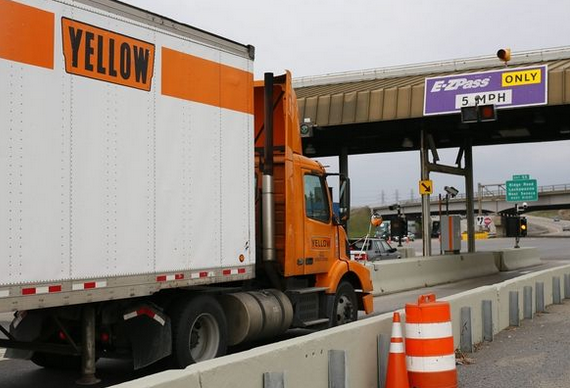Rhode Island Truckers Oppose Governor’s Toll Plan
The president of the Rhode Island Trucking Association (RITA) issued a statement today condemning Governor Raimondo’s plan to toll commercial trucking in Rhode Island.
“We were not built into this process and it is clear the administration has not considered the impact this will have on both the trucking industry and the price of consumer goods in Rhode Island,” said Christopher Maxwell, president of the Rhode Island Trucking Association. “We all believe Rhode Island’s roads and bridges need to be improved and we want to be part of the solution, but to unfairly target one industry is simply not an equitable plan.”
The group emphasized: “The trucking industry already funds a disproportionately high percentage of road improvements through both an apportioned fuel tax and registration fee for every linear foot of travel in the state. The current proposal only serves to double-tax the trucking industry.”
“The Rhode Island Trucking Association understands the state’s funding predicament with regard to infrastructure maintenance and repairs,” stated Chris Maxwell, RITA president. “This organization is willing to pay its fair share to assist the governor, but tolling is not the answer.” “
The governor mentioned 18-wheelers at her press conference, but this proposal greatly impacts all kinds of trucking including delivery trucks. Small business owners will be forced to pass increased costs onto their consumers, as they will have no other choice. To our knowledge, every other state that the governor cited in her press release that has tolls also includes passenger vehicles. This type of inequitable taxation will only hinder economic growth,” added Maxwell.
“We also are disappointed the governor has offered no specific tolling locations or costs associated with her proposal.” The group also underscored that tolling is “inefficient, expensive and inequitable means of generating revenue.”
According to a 2011 study conducted by the National Cooperative Highway Research Program, “tolling agencies spent 33.5% of revenues for toll collection, administration and enforcement activities in 2007.” In many cases, tolls simply force trucks off the interstate in search of less safe, secondary roads, resulting in a substantial negative impact on local communities.
Category: Featured, General Update











